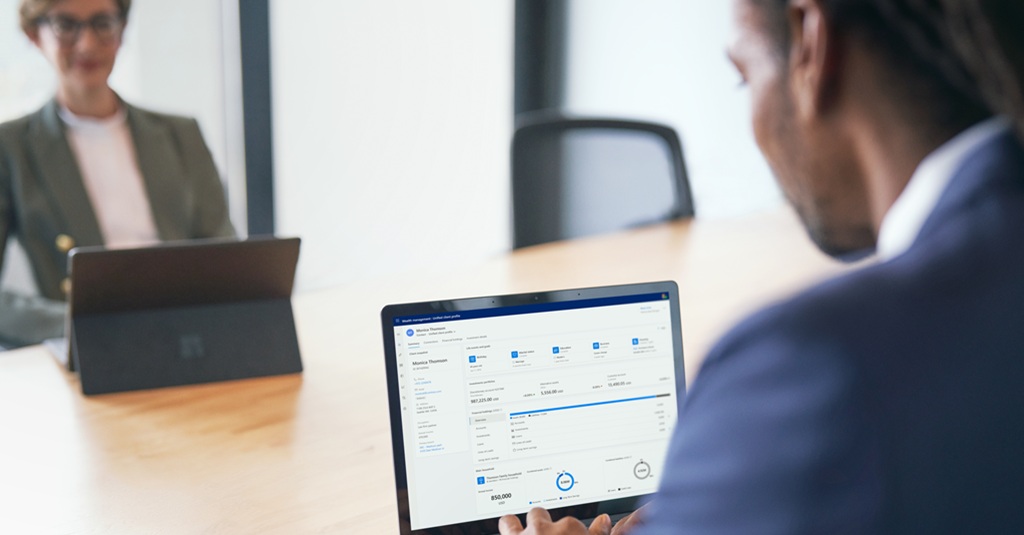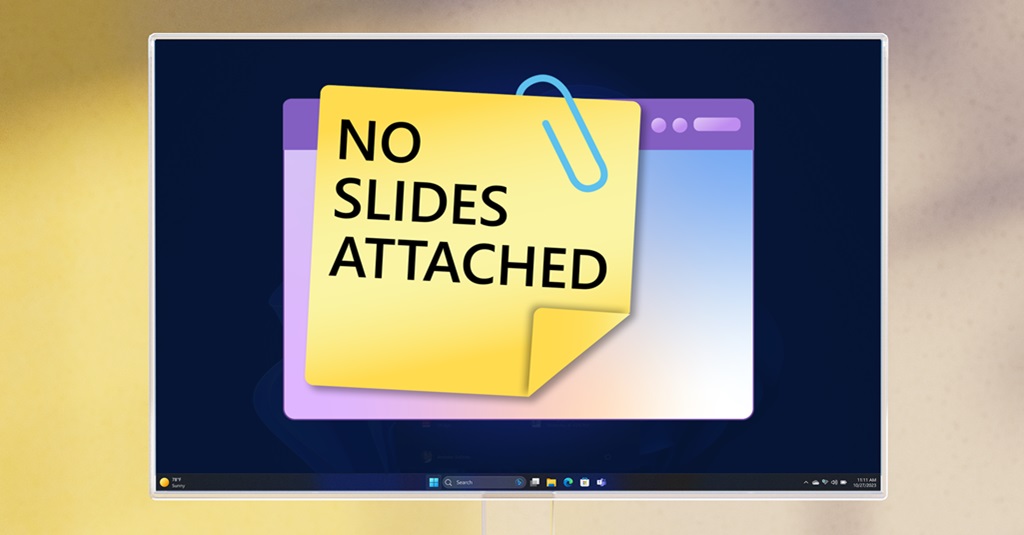Check out these top stories for the latest news of the week for Microsoft partners in the Americas.
Microsoft’s goal of providing a unified new commerce experience (NCE) took a big step forward with the January 10, 2022, launch of commercial seat-based offers for Microsoft 365, Dynamics 365, Power Platform, and Windows 365 in the Cloud Solution Provider (CSP) program. Since then, an array of new features and functionalities have been and will be introduced to CSP provisioning and billing, in response to partner requests and customer needs.
We encourage you to begin or continue migrating legacy subscriptions to new commerce. Check out what’s new and find answers to common questions below.
See what’s new
Co-op for NCE
We’re excited to announce that we’ve extended the availability of cooperative marketing funds (co-op) for NCE in CSP as of November 1, 2022. Learn more about your eligibility for Microsoft Commerce Incentives.
Legacy CSP subscription renewals
Renewals of legacy commercial subscriptions can continue to be placed until further notice.
Tools to help you migrate legacy offers to NCE
The NCE Mapping tab in Partner Center maps legacy offers to corresponding new commerce product SKUs. Partners can migrate their legacy subscriptions for Migration enabled offers using the migration capabilities in Partner Center’s user interface or APIs. Other product SKUs can be acquired manually if they do not yet support migration. Learn more about migrating legacy subscriptions.
Retired legacy CSP incentives for seat-based offers
These incentives have been retired as of Dec 31, 2022. Read this partner center announcement to learn more.
A brief overview
Part of a multi-phase journey that’s changing the way customers transact with Microsoft, the new commerce experience for seat-based offers in CSP provides partners with greater standardization of offers and terms; gives customers more choice and flexibility in how and where they purchase; and enables partners to sell or upsell to a larger set of existing and new customers.
By consolidating its sales programs to a single platform, Microsoft is making it easier for customers to buy and manage assets with cloud offers such and perpetual software, also now widely available. The result is a more intuitive and streamlined purchase experience that will benefit both you and your customers.
Learn more with this simplified look at the changes in the new commerce experience, including where partners should be focused in their new commerce adoption journey.
Get ready to sell
To prepare to sell these new offers, check out the readiness collection.
Still have questions? Find answers in the following FAQ.
| Question | Answer |
|---|---|
| Is Microsoft changing the focus on CSP with the new commerce experience? | No. We’ll continue to invest in the CSP program as one of our key sales motions for SMB, as well as in Microsoft’s overall commerce experience, to provide the differentiated offers and capabilities partners need to grow their business. |
| Do the new commerce changes apply to all types of CSP partners? | Yes. All partner types in CSP (Indirect Provider, direct bill, indirect reseller) are included in the new commerce experience. |
| Will I need to sign or accept any new or different agreements? | The Microsoft Partner Agreement (MPA) that partners accept to activate their CSP tenants will continue to be the standard agreement for partners. Customers will continue to accept the Microsoft Customer Agreement (MCA) that governs their purchases. Neither partners nor customers will be required to sign or accept again the MPA or MCA, respectively, as part of this new commerce transition. |
| Can I renew legacy commercial subscriptions? | No new orders for legacy commercial subscriptions may be placed. Renewals of legacy commercial subscriptions can continue to be placed until further notice. We want partners to have ample opportunity to become accustomed to the new commerce features and functionalities; migrate legacy subscriptions to the new commerce experience; and adjust customer billing and accounting operations based on the standardized new commerce invoicing process and schedule. Any annual or multi-year term subscriptions on the legacy platform will remain in effect with existing legacy pricing and policies until the end of their respective subscription terms. |
| What specific benefits will my company receive from migrating to new commerce? | Some of the enhancements and benefits for partners and customers include: |
| Will all of the offers in the existing CSP catalog be available to sell in the new commerce experience catalog? | As of today, only commercial seat-based offers are available for provisioning in new commerce. Government, education/academic, and charity/non-profit seat-based offers will be added to the new commerce catalog in the future (date TBD). |
| What is the new cancellation policy in new commerce and how does it differ from the legacy policy? | In the legacy CSP experience, cancellation of a subscription was not available. Instead, partners could suspend a subscription to stop the partner billing for it, and tand would no longer be billed. The subscription would eventually expire if not renewed at the end of the term. In new commerce, a seat-based subscription of any term length can be cancelled within the first seven days of the term, with a prorated refund (proration calculated daily). After seven days, cancellation is not allowed; the partner will continue to be billed for the remainder of the term. Partners will not receive a prorated refund when a subscription is billed up-front for the entire term. |
| Does the seven-day window for cancellation and seat reduction in new commerce only apply to business days? For example, if I order a subscription on Friday, do I have until the following Sunday to cancel? And does the cancellation window also exclude holidays? | The 168 hours (seven days) at the beginning of each seat-based subscription term in new commerce during which partners can cancel the subscription or reduce seats on that subscription includes all days of the week and does not exclude weekend days or holidays. So, if a subscription is purchased on a Friday, the partner has until the following Friday to cancel or reduce seat counts. Note that the 168-hour cancellation and seat-reduction period begins at the time on the clock at which the subscription order or renewal is made. |
| What are the refund policies for cancellations? | A partner can receive a prorated refund on the initial subscription payment of the term only within the first 168 hours (seven days) after the order is placed or renewed (proration calculated daily). After the first 168 hours of the term, the subscription can’t be cancelled and payment for the remainder of the term must be made. |
| Will a customer be able to increase or reduce seat counts on a subscription in the middle of the term in new commerce? | The seat count on a subscription can be increased during the middle of an annual term, with billing adjustments reflected on the next invoice and reconciliation file. For monthly term subscriptions, the seat count can be increased or decreased at renewal at the end of the month term. However, if more than seven days have elapsed since the subscription order was placed or renewed, the seat count cannot be decreased until the next renewal of the subscription. This policy is in line with current market practices for per-user subscription plans. A seat-count decrease within the first seven days of a subscription term (after either initial purchase or renewal) can be made via self-serve in Partner Center or through the API. |
| With the new commerce experience for seat-based subscriptions, when a customer purchases an annual term subscription from Partner A, are they allowed to move that subscription to Partner B within that year’s term? | No. Moving subscriptions across partners is not supported in new commerce. Partners can cancel subscriptions but must adhere to the cancellation policies regarding their committed term. For example, if the customer purchases a subscription from Partner B after the first seven days of the term of the subscription purchased from Partner A, Partner A will not be able to cancel the original subscription on behalf of the customer and there will be no refund for the remainder of the annual term of the subscription with Partner A. In such a case, it would be best for the customer to wait until the time of renewal of the Partner A subscription to purchase the same SKU from Partner B and then to not renew the subscription with Partner A. |
| Will I continue to be paid partner incentives rebates on legacy subscriptions during the new commerce transition? | As we continue our journey to new commerce, our partner incentives are evolving. We currently offer partner incentives for more than 400 Azure, Microsoft 365, and Dynamics 365 SKUs in new commerce to support partners as they migrate customers to the new experience. As previously announced, with the new commerce incentives in place, Microsoft discontinued the legacy incentives for these SKUs on December 31, 2022. You can find a complete list of the impacted SKUs in the CSP product addendum on the partner incentives portal. To continue earning incentives, you must transact these offers in new commerce CSP, while enrolled in the Microsoft Commerce Incentives (MCI) program and meeting eligibility requirements. Non-commercial offers included in the CSP product addendum that aren't available in new commerce as of January 1, 2023, will continue to be available through legacy CSP incentives. Microsoft will continue to pay partner incentives for non-commercial offers that aren't available in new commerce, including Education, Government, and Nonprofit offer IDs, and promotions. |
| When will I be required to move existing subscriptions to new commerce? | As of January 1, 2023, monthly incentives rebates will no longer be paid on active legacy commercial seat-based subscriptions. Though legacy subscriptions can still be renewed on the legacy platform for the foreseeable future, an existing legacy subscription that hasn’t yet reached the end of its term can’t be repurchased on the same SKU on legacy as a means of extending the legacy term end date because this would be considered a new subscription order on legacy and would therefore be blocked after March 10, 2022. |
| Why do monthly term subscriptions cost more than annual term subscriptions in new commerce? | The new monthly term subscriptions in new commerce are billed by Microsoft at a 20 percent higher price than annual term offers of the same type. This is because monthly term subscriptions give the partner the ability to cancel on behalf of the customer at the end of any monthly term, instead of incurring additional payments for the remainder of an annual term. The premium pricing is in line with standard practice in the Microsoft Web Direct program and in other industries—for example, an online media subscription in which the customer pays more for a month-to-month subscription than for an annual term commitment. Note that some commercial seat-based offers in new commerce do not have the monthly term option currently available; see the CSP catalog and pricing list to confirm monthly term availability. |
| Can monthly term subscriptions be changed to annual term easily in new commerce? For example, some businesses need subscriptions or additional seats only during peak times of year. | Yes. A customer’s subscription can be changed from monthly term to annual term in new commerce. The following month’s reconciliation file will include a credit for the prorated difference that’s paid in advance, reflecting the 20 percent lower price for annual subscription, and the annual term charge will be effective from the date the subscription term is changed. However, an annual term subscription in new commerce cannot be changed to a monthly term subscription except within the first seven days of purchase (through cancellation and repurchase) or at the time of renewal. A subscription cannot be cancelled after the first seven days of the term. |
| Can the customer have a combination of annual and monthly terms on the same offer to allow for seasonal or temporary users on the monthly term? | Yes. The customer can have both monthly term and annual term subscriptions for the same seat-based offer at the same time with the appropriate number of seats in each term to accommodate its permanent and seasonal employees. |
| I may need to suspend a customer’s subscription for non-payment or if the customer is temporarily unable to use the subscription due to business disruption. How do I resume the active subscription when the customer is paying again, or their situation returns to normal? | To resume a subscription, you would simply need to go to the subscription account in your tenant and change the status from “Suspended” to “Active.” The customer’s access to the subscription would then be restored with no loss of data or user accounts. You can perform this resumption step at any time during the subscription term. Note, however, that unlike legacy, the billing for the subscription will continue during the period of suspension. |
| Will I be able to sell Windows 365 as part of the new commerce experience in CSP? | Windows 365 was made available in the current CSP experience in August 2021, and in CSP new commerce in October 2021. The following options and conditions apply to Windows 365 in CSP new commerce: |
| Along with the invoice changes, will the monthly pricing lists reconciliation files be provided differently? | Yes. As part of the addition of license-based offers to new commerce, partners in CSP will be able to integrate monthly pricing lists via API and will be provided with access to a single reconciliation file updated hourly. |
| I’m billed by Microsoft for Azure plan subscriptions on the eighth day of each month. Will that be the case for Microsoft 365 and other seat-based offers? | Yes. Monthly partner invoices for new commerce transactions of any offer type will be posted in the partner tenants between the sixth and eighth day of each month. As a result, partners should adjust their internal accounting and billing schedules and systems to accommodate this standardized new commerce billing date for seat-based offers sold in new commerce. With the inclusion of seat-based offers in new commerce, partners will be able to track and manage charges for these offers in the Azure Cost Management tool, along with Azure plan. Get the details. |
Additional resources
- What you need to know about the new commerce experience
- FAQs for the new commerce experience in CSP
- L200: M365, D365, Power Platform, and Windows 365 in NCE
- What’s new in M365, D365, Power Platform, and Windows 365 in the NCE
- November 2022 Partner Center announcement
- Migrate subscriptions to new commerce – Partner Center
- Customer messaging documentation for CSP partners
- Partner Center announcements



















